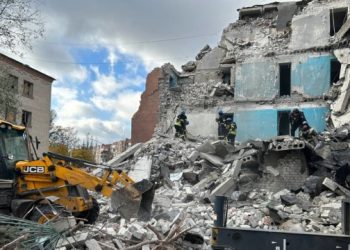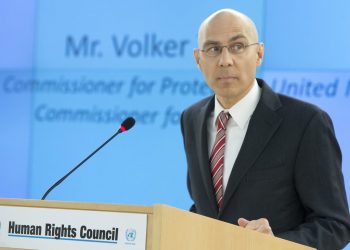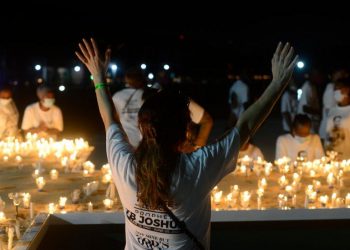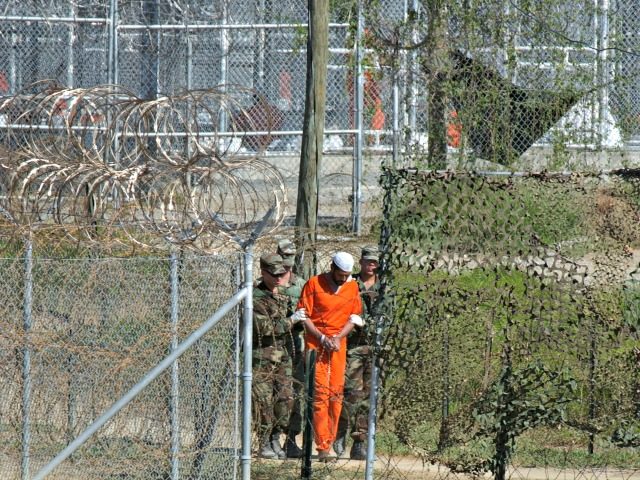Human Lives Human Rights: The ongoing blockade of the Lachin corridor is endangering the lives of thousands of people in the breakaway region of Nagorno-Karabakh.
Rights groups have called on Azerbaijan’s authorities and Russian peacekeepers to immediately unblock the route and bring an end to the unfolding humanitarian crisis.
The road, which connects Nagorno-Karabakh to Armenia, has been inaccessible to all civilian and commercial traffic since 12 December 2022 after being blockaded by dozens of Azerbaijani protesters, widely believed to be backed by the country’s authorities.
The situation has left some 120,000 ethnic Armenian residents in Nagorno-Karabakh without access to essential goods and services, including life-saving medication and health care.
Interviews conducted with health workers and residents in the region revealed the blockade’s particularly harsh impact on at-risk groups including women, older people, and people with disabilities.
The blockade has resulted in severe shortages of food and medical supplies, as humanitarian aid delivered by the International Committee of the Red Cross and Russian peacekeepers has been insufficient to meet demand.
Disruptions to the supply of electricity, natural gas and vehicle fuel add up to extreme hardship, especially for groups who are vulnerable to discrimination and marginalization.
The Azerbaijani authorities have internationally recognized sovereignty over these territories and exercise control over the territory from which the blockade is being carried out.
It is Azerbaijan’s obligation to undertake to ensure that the population in Nagorno-Karabakh is not denied access to food and other essential goods and medications.
For its part, the Russian peacekeeping mission is mandated to ensure the safety of the Lachin corridor. However, both parties are manifestly failing to fulfil their obligations.
Meanwhile, access to healthcare has become the most pressing issue in the blockaded region, with a deficit of medicines and medical supplies as well as insufficient fuel to enable outpatient care.
The situation is particularly acute for older people and people with disabilities, many with chronic health conditions, whose access to healthcare services is severely limited or in some cases completely disrupted.
Aldo, women’s health and maternal health are also under serious threat due to shortages of medical supplies.
Health workers, older people and people with disabilities said that medication for chronic conditions, including those to manage blood pressure; heart conditions; epilepsy, and asthma as well as pain medication and antibiotics had become much more difficult or impossible to access, with many pharmacies in Nagorno-Karabakh closed completely.
The blockade has caused a food shortage, which led the de-facto authorities to introduce a rationing system in early January.
Based on interviews with residents, it appeared that women typically prioritized giving food to other family members over themselves.
Healthcare professionals noted a significant increase in cases of immunodeficiency, anemia, thyroid disease, and worsened diabetes conditions among women and children, as a direct result of food shortages.
People with disabilities, including those with limited mobility, said they were suffering more from isolation during the blockade, as they were unable to use either public or private transportation due to the lack of fuel.
Among other dire consequences inflicted by the blockade is the violation of the right to education. All schools and kindergartens, attended by around 27,000 children, were temporarily closed due to the lack of heating and electricity shortages. Although schools partially reopened on 30 January 2023, school time is limited to four hours a day.
1,100 residents of Nagorno-Karabakh have been left stranded outside of the region and unable to return home since the beginning of the blockade, including at least 270 children. They are accommodated in hotels or in the homes of relatives and volunteers in Armenia.
The shortage of gas and petrol is further exacerbated by frequent cuts to the supply of gas from Azerbaijan and electricity cuts that last an average of six hours a day.
With the blockade now in its ninth week, all eyes are on the Azerbaijani authorities and Russian peacekeepers.
We call on both parties to immediately take effective measures, in line with international human rights standards, to lift the blockade of the Lachin corridor without any further delay and end the unfolding humanitarian crisis.


















